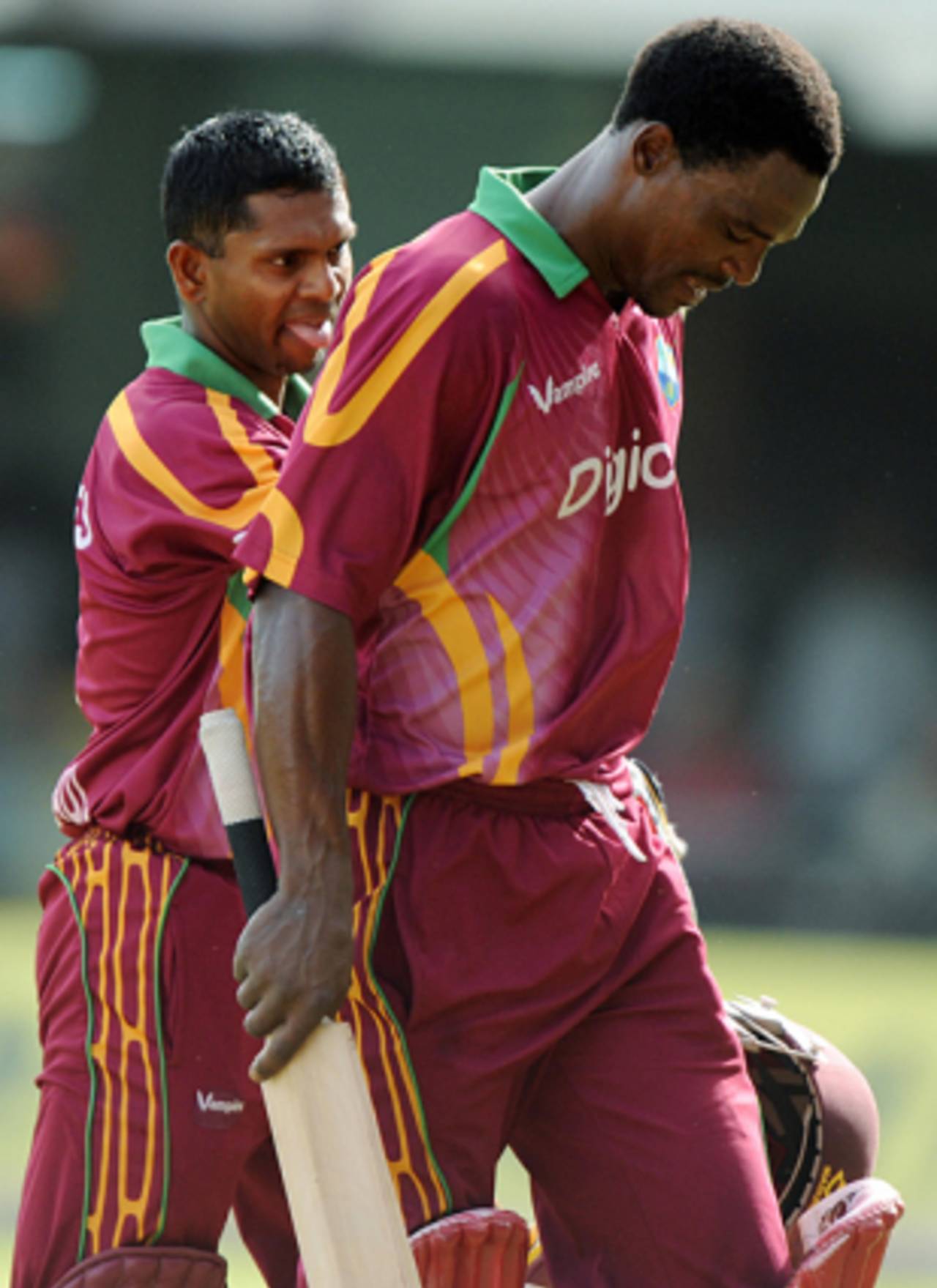It is the quintessential Caribbean way in the face of any challenge, whether great or small, to either shrug your shoulders, cuss or wave your arms all over the place in frustration, and then move on.
Every now and then, though, something happens that makes you stop dead in your tracks and wonder why.
No, not the contrasting performances in the first two one-day Internationals in Kingston. That's too obvious and, anyway, we've grown accustomed to the West Indies cricketers appearing amateurish and thoughtless one day, only to be disciplined and purposeful the next.
So going on about the specifics of those opening encounters against India, or even the selectorial issues associated with these matches, is to be trampling over ground so beaten that nothing new will spring from it, except in the minds of those who fell from a sapodilla tree yesterday or who really cannot recollect anything beyond the last nine days.
Sunday's drubbing of MS Dhoni's men at least offered something that has become increasingly infrequent amid the rush by almost everyone towards the Twenty20 format - an endorsement of Test cricket.
Ravi Rampaul is clearly desperate to play the five-day version. His attitude suggests that he is deserving of a chance, but let's wait and see if the desire and appetite are sustained if he does play a few Tests and, more importantly, an offer or two come in his direction to sign up for one of the many mushrooming money-spinning vupping sessions.
Up the road from Sabina Park, though, we had the Jamaica National Track and Field Championships competing for attention last weekend. They weren't packed in (except for the covered section) at the National Stadium on any of the three days, which was surprising given the number of reigning Olympic champions, and especially a certain Usain Bolt, on show.
Yet the focus on the heroes and heroines of Beijing, together with many talented aspirants seeking to topple them from their revered pedestal, brought home one of the many stark contrasts of Jamaican society.
For here were young men and women marrying phenomenal athletic ability with the impressive work ethic and almost puritanical discipline necessary to be the best in the world on the track. Other than their training and competition outfits, they looked no different from the young men and women killing and disrespecting each other on any given day in any of Kingston's garrison communities.
It begs the obvious question: How can a society that is so violent and, like most other Caribbean territories, indisciplined and inherently corrupt, be home to a tradition of athletic excellence going back more than 60 years, a tradition that requires almost the exact opposite of what prevails virtually everywhere else?
Think about it. The rest of the world, with all their money, their resources, their considerably larger populations and their legacy of discipline and respect for established institutions are left chasing after these athletes bedecked in the green, gold and black of Jamaica while their scientists try to figure out what is the source of this apparent miracle, to the extent that Germans and Japanese have analysed yams from Trelawny in the apparent hope of finding the miracle component that puts Bolt so many strides ahead of everyone else.
It doesn't make any sense.
Then again, it doesn't make sense either that it is possible for Jamaicans to make a complete mess of a simple task, like serving specific meals only for those who ordered them on the flight to St Lucia on Monday.
Apparently the management of the Indian squad had requested vegetarian meals for their squad of twenty-something persons on the Air Jamaica charter that also included the West Indies contingent, the television and radio crews, along with a few journalists and family members.
So what happens? History is made, that's what. Yes, the first-ever all-vegetarian flight in the history of Caribbean aviation. Granted, the Spanish rice and curried vegetables were quite tasty, although more than a few just cringed at the idea of consuming something that didn't include some form of meat in it. The point, though, was not about taste, but about the failure of communication to the extent that something like that could have happened at all.
Not surprisingly, some shrugged their shoulders, some cussed aloud and some waved their arms all over the place. A few even rolled their eyes or shook their heads in disbelief, while a colleague of mine drawled: "This is a dog show, man!"
He was wrong, of course, for no dog was being served, although it is reported that there was a bit of commotion at the back of the aircraft as a fried chicken drumstick wrapped in aluminium foil was discovered in a seat pocket.
I must have dozed off at the time, but I'm sure I felt the plane tilting inexplicably to the right halfway through the flight. Maybe I was dreaming.
This place we call home is indeed a dream for some, but a nightmare for an increasing number, and for reasons that are eminently preventable if only our leaders gathering in Guyana for another Caricom old talk session would exercise the same will and decisiveness that define so many other aspects of Caribbean life, both positive and negative.
In the meantime, we'll continue to be a people of extremes who celebrate sporting brilliance, lament increasingly mindless violence and steups at the next serving of rice and vegetables, before moving on.
Fazeer Mohammed is a writer and broadcaster in Port-of-Spain, Trinidad
